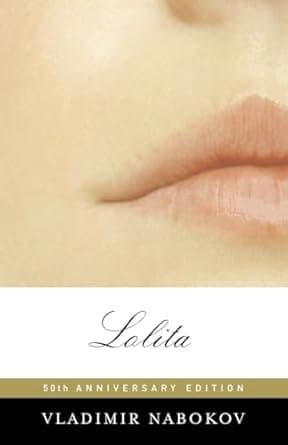
Book Stats
435
Upvotes
156
Downvotes
+279
Net Score
Lolita
by Vladimir Nabokov
Description
Nabokov's controversial masterpiece about Humbert Humbert's obsession with 12-year-old Dolores Haze, considered one of the greatest novels ever written for its prose style despite its disturbing subject matter.
Humbert Humbert, a middle-aged European intellectual, becomes obsessed with twelve-year-old Dolores Haze, whom he calls Lolita. When he marries her mother and then becomes Dolores's stepfather after the mother's death, he begins a sexual relationship with the child that he attempts to justify through elaborate rationalization and literary artifice.
Nabokov's genius lies in creating a narrator who is simultaneously compelling and utterly reprehensible. Humbert's cultured voice and literary sophistication cannot disguise the fundamental horror of his actions, but they make him a more complex villain than a simple monster. The novel forces readers to confront the seductive power of articulate evil.
The book's exploration of America in the 1950s, seen through European eyes, creates a double perspective that illuminates both cultures. Humbert and Lolita's cross-country journey becomes a tour of American popular culture, motels, and roadside attractions, all filtered through Humbert's obsession and Nabokov's satirical eye.
Nabokov's prose style is extraordinary—lyrical, precise, and multilayered, capable of both beautiful poetry and devastating irony. The famous opening—"Lolita, light of my life, fire of my loins"—immediately establishes the tension between literary beauty and moral corruption that drives the entire novel.
The novel's treatment of its child victim is crucial to its ethical dimension. While filtered through Humbert's self-serving narrative, glimpses of Dolores's real personality and suffering emerge, showing the human cost of his obsession. Nabokov ensures that readers never forget that behind Humbert's literary elaborations is a real child being harmed.
The book's influence on literature has been enormous, demonstrating that novels can tackle the most difficult subjects through artistic sophistication and moral complexity. Nabokov proves that literary beauty and ethical horror can coexist, forcing readers to grapple with fundamental questions about art, morality, and the relationship between aesthetic and ethical value.
Lolita remains one of the most discussed and analyzed novels in American literature, a work that continues to challenge readers and critics with its combination of stylistic brilliance and moral complexity.